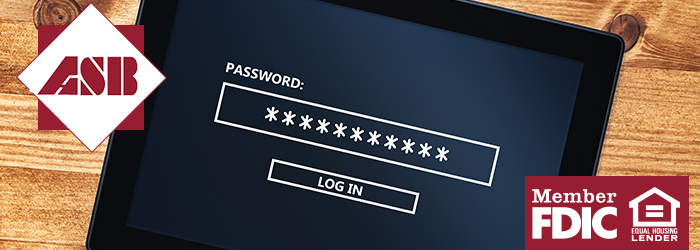
We all know how important passwords are to our safety. Having strong passwords that you frequently change is critical! Here is a brief refresher to ensure your passwords are working to your benefit as well as the importance of password protection.
Why You Should Have Passwords
Not properly password protecting your accounts, devices, information, etc. can allow you to be vulnerable to break-ins that can result in loss of personal information, data, property, and more. The most common way hackers break into our accounts is by guessing passwords. Using simple and easy-to-guess passwords could make you a victim of a hacker. Modern technology allows us to reduce our paper trail instead at risk if we do not have strong cybersecurity.
Top Password Security Points to Know
To reduce the likelihood of being hacked, it is important to understand what a strong password is and the traits it should include. Not properly securing your information will result in someone other than you gaining access to your device.
- Create a long and complex password (try not to include family members’ names, birthdates, or easily accessible personal information)
- Passwords should be at least 10 characters long
- Utilize a combination of upper and lowercase characters, symbols, and numbers
- Never use the same password for two or more devices – if you were hacked they can easily gain access to more and more
- If you cannot remember a password, use a password manager
What Is a Good Password?
A good password is very important to obtain, but just because it is a good password you must change your passwords frequently to maintain top security. If you have a fear of forgetting your passwords, do not worry. Here are some traits of how to create a good password and tips on how to remember your passwords.
- Use passwords with common elements, but customized to different accounts such as ABT2_uz_GGL@(About to use Google)
- Use a phrase paired with acronyms such as scripture or a saying
Bad Password Habits to Break
We all know passwords are undoubtedly the token to our security and if we do not work hard to create strong passwords and safely remember them, we could be at risk. Never leave your device unprotected and if that means using a password paired with dual authentication of some sort that is ok to incorporate additional security. Do you have bad password habits? Read over these points to ensure you are on the right track to secure passwords.
- Do not reuse passwords
- Do not write your passwords down
- Do not share your passwords or store them in an easily accessible place
- Do not keep the same password or phrase for long
- Do not use a short password
- Refrain from using information that is easily accessible
For important accounts with personal information, you should change your password every 90 days religiously
Hacking has become more and more prevalent in a world that uses technology for nearly everything. Having good password habits and secure passwords for each and every account will keep you and your information safe.
August 9, 2022 by American State Bank









